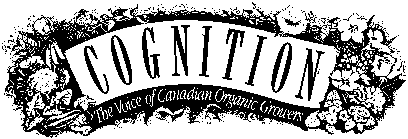

Cognition Index | Virtual Library
| Magazine Rack
Search
| Join the Ecological Solutions Roundtable
by Robin Guard
I first heard about wwoofing in 1983, and began by looking it up in the Shorter Oxford Dictionary:
Wwoof (wuf), v. [O.E. woef, to travel in search of organic farms; to pull weeds in exchange for alms.] Wwoofer, n. one who wwoofs.
l. "'Twas a wwoofer and his lass
With a hey and a ho and a hey nonny no" etc.
(W. Shakespeare, The Wwoofer’s Tale, 1595)
2. Didst find ourselves up the creek, and night drawing on and having no paddle, we didst approach the nearest farmhouse and didst offer the goodwife to wwoof upon the morrow in exchange for victuals. Upon hearing our tale, she did tell us where to go.
(G. Chaucer, The Canterbury Wwoofers, 1369)
Although it seems that wwoofing has a long and honorable history, we learned that as recently as ten years go the movement existed only in Britain, and stood for Working Weekends On Organic Farms, having been founded as an opportunity for city dwellers to get out into the country. We placed an ad in their Wwoof News and have had a generous supply of helpers every year since.
For the first few years, all our visitors came from the U.K. and tended to be first-time travellers. We shamelessly advertised "our organic farm near Niagara Falls" which gave us an edge. In those days we would get letters booking space months ahead, but not any more. Nowadays the phone rings, and it’s "Hi, I’m at the bus station. Can I come and wwoof for a couple of weeks?" They’re far more experienced and mature than they used to be, and a surprising number come to us as part of a round-the-world jaunt.
About half of them come as couples. So far we have not had a couple requesting separate rooms and we don’t even ask any more. Our youngest visitor was 17 and came from East Germany; the oldest was 55 and came from Australia. The biggest change since the early days is the variety of nationalities we get. This started by travellers picking up copies of Wwoof News in British youth hostels.
Probably Canada was the first country to have its own secretary outside Britain. John Vanden Heuvel lived in Nova Scotia when we first corresponded with him. He’s now in B.C. and the organization is far bigger. Australia and New Zealand now have chapters, and similar groups have sprung up which have similar rules but are not restricted to organic farms.
To be a wwoof host you need to have a lot of faith in your fellow man. When a couple of large strangers show up on your doorstep and ask to become an intimate part of your family for a few weeks, you either take them on trust or you don’t take them at all. We’ve only had one bad experience (some cash stolen) in nearly a hundred visits, and countless very happy ones. There was the forester from Denmark who felled a huge Norway spruce to within an inch of where I wanted it. The couple from New Zealand who built a log bridge over a stream without supervision (it’s still there). Herman the German who had a wicked sense of humor and who was willing to do anything except help in the kitchen; he told us on the day he left that he was a professional cook. And Ahito from Okanawa, who amazed us with a brilliant song and dance act one evening, with simultaneous translation.
Among the weird was young Mavis from England who had never been away from home before and had nightmares. She fell out of bed while sleepwalking, dislocated her thumb and had to be taken to Emergency at three in the morning. And we remember Helga, a very large girl who lusted after a Catholic priest, pursued him all over the world and talked incessantly about her passion.
The best part of all is the conversation over meals and in the evening. There has been an incalculable amount of learning on both sides. In recent years we’ve been getting people with no previous interest in organic growing who use the organization as a cheap way to travel. They leave us with radically changed ideas about food and health, and that makes us feel good.
We have many happy memories of the people who have stayed here. Those who have been wonderful far outnumber the ones who were weird. We’ll be inviting more this year.
Copyright © 1995.
Robin Guard.Reprinted with permission. All rights reserved.
Info Request | Services | Become EAP Member | Site Map
Give us your comments about the EAP site
Ecological Agriculture Projects, McGill University (Macdonald
Campus)
Ste-Anne-de-Bellevue, QC, H9X 3V9 Canada
Telephone:
(514)-398-7771
Fax:
(514)-398-7621
Email: info@eap.mcgill.ca
To report problems or otherwise comment on the structure of this site, send mail to the Webmaster